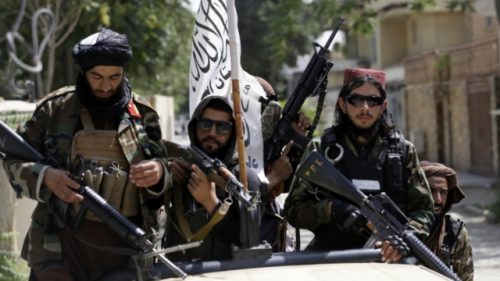It looks as if with the official departure of the US military from Kabul, a media cone of silence perpetuated by the National Establishment Media has descended over the whole ghastly mess, leaving a good many of us who have been following the chaotic and bloody disaster that it was with unanswered questions. Like exactly how many Americans were left behind in Afghanistan? American citizens and employees of international and US-sponsored NGOs, or dual nationals home visiting relatives in the “Old Country” over the summer vay-cay? A couple of hundred? Or thousands? Independent military reporter Michael Yon and others across the indy blogosphere reported that American citizens with their passports in hand were turned away from entering the Kabul Airport by the US Army, and it is those people who are stranded in Afghanistan now. Well, maybe. Between the proverbial fog of war and the cone of silence a great many questions remain.
Afghanistan/Pakistan
Debacle
Seriously, I never expected much from American adventuring in Afghanistan, and that was even well-before 9-11. Everything that I had read about the place starting with Kipling, and even pop novels like MM Kaye’s The Far Pavilions, and G.M. Fraser’s Flashman series especially the first Flashman adventure, which covered the First Afghan War in rollicking (and considering current events) depressing detail. All that I ever read about the place signaled “handle with extreme care, equipped with asbestos gloves and long tongs” to one uninitiated into the mysteries of international relations. Considering how those considered to be credentialed experts in that region have karked up the American withdrawal from Kabul and Afghanistan proper … one might very well conclude that a survey of popular historical novels dealing with the place and people therein might afford a better grasp of realities.
Made for TV
You see the guy on the right? I call him “fasionable Afghan guy”.

Let’s talk about “fashionable Afghan guy” for a minute or two.
Following Orders
The career field in which I served for twenty years was a small one, and one with some inherent peculiarities, one of which was possession at radio detachments of a library of pop music intended for broadcast on AFRTS channels. One of those things which was instilled in broadcast field recruits early on in our training was that no one of any higher rank (or degree of inebriation, often the case) was permitted to remove recordings from our library for personal amusement. Many were the tales of duty E-2s or E-3s refusing such orders from senior officers, who were operating under the (often alcohol-inspired) delusion that the AFRS library operated on the same basis as the local base library. This often happened late at night when the most junior staffers were on duty. That was an order that we had to and would refuse, no matter the rank, and degree of inebriation of the commander demanding it. In that, we could count on the complete backing of our broadcast command, especially when they were informed of it, sometime the following morning. No one, not even (according to some legends, the base or wing commander) was allowed access to the AFRTS library, much less to remove elements of it from the custody of the AFRTS outlet, even if that only custodian was a lowly first-hitch enlisted.
Biden’s Victory Parade
In Anton Myrer’s novel Once an Eagle, and the made-for-tv movie that was based on it, the protagonists are two US Army officers whose lives and careers are followed over several decades. Sam Damon is a true fighting man, dedicated to his troops and to the mission, while Courtney Massengale is pretty much a total careerist. At one point during WWII, Damon is conducting a desperate last-ditch defense against the Japanese, while not all that far away, on the same Pacific island, Massengale is leading a ‘victory parade’ through the streets of a town that had been liberated…a parade mostly in his own honor, it seems.
Biden wanted the symbolism of ending the Afghanistan war on 9/11, a nice round number of years from the event that led to that war. That’s the kind of thing that is important to him. The 9/11 speech that he intended to give about the end of the war was to have been his own victory parade.